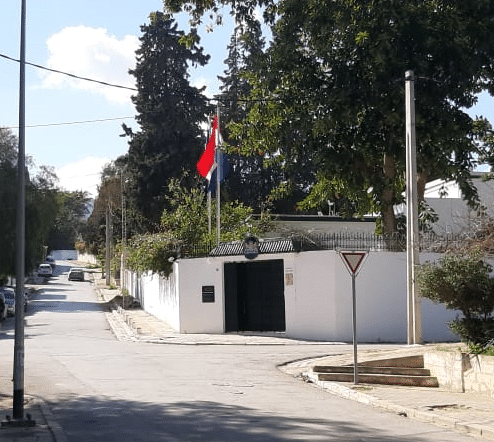Slowly, my time here in Tunisia is coming to an end. I'm halfway through. So far, I've been learning a lot. Tunisia is a very interesting country. We often see it as the great example for the region: Tunisia was the only country that experienced a peacefully democratic transition after the Arab spring. And it is also considered a very progressive country. Tunisia's new constitution includes women rights for example. But at the same time there are many problems in the country; unemployment, perceived lack of economic prospects and lack of trust in the government. So the question remains: Was the revolution really successful?
Was the revolution successful?
Tunisians don't really feel the change. If you ask them whether life is better now, after the revolution, the most common answer is, "it depends". So yes, there is more freedom, and there are more rights. But on the other hand, there are huge economic problems in the country. Unemployment is high, especially for the youth, inflation is still increasing and social inequality is a big problem as well. As some of the participants of the FMS training last week mentioned, "There is no middle class anymore. There is just the rich and the poor".
For me it is interesting to see whether these factors are they key determinants for migration. Looking at the data, you can see two migration peaks in the last decade: the first one right after the revolution and the second one starting in the summer of 2017. The peak after the revolution might be relatively easy to explain. Due to the circumstances, border control in Tunisia was low, making it relatively easy to get on a boat to Europe. The second peak is more surprising. Last year, Tunisians were the largest group of migrants arriving in Italy irregularly. How did this peak come about?
Is migration a problem?
Last week I visited the Dutch Embassy here in Tunis. Recently, Tunisia has become a so-called 'focus country' for the Netherlands. This is largely due to the position of the country in the region, a great example for others. Therefore, it is important to support the country.
Tunisia is also important regarding migration. Due to its stable position in the region, there were discussions in Europe about putting into place disembarkation platforms for migrants in the Mediterranean sea. Besides, many Tunisians do try to migrate irregularly to Europe. However, looking at the numbers, Tunisia is so small that the number of Tunisians migrating irregularly into Europe is also relatively small. This is because most of them enter the EU legally, but then overstay their visa for example. So migration that is happening from Tunisia takes a different shape than migration that is taking place from many sub-Saharan African countries.
A big problem for Tunisia, however, also is legal migration. Many of the highly educated youth leave the country, legally. France, for example, has a special programme for Tunisia. The French 'arrondisements' can determine a certain number of vacancies for which Tunisians can then apply for from Tunisia. Although these numbers are limited, as well, there are estimates that half of these migrants stay in France after their first temporary contract ends. There is thus a risk of 'brain drain'. An interesting discussion to look further into.
Government reform
One of the biggest economic problem in Tunisia is the size of the public sector. It is way too big for the size of the country and economy. Here, reform is crucial. The country receives financial support from the International Monetary Fund (IMF). One of the conditions attached to this support is the reform of the public sector. But it's really hard to let people go, mainly because civil society, and specifically the trade union, is very strong. Reform of the public sector thus creates a lot of unrest in the country.
This week I have some interesting meetings with whom I can discuss these issues further. Is it really the legal migration that is of greatest concern? And if so, how can it be regulated in such a way that it's beneficial for all? What can explain the surge in irregular migration since 2017? And will government reform be possible at all?
Thus, plenty to do in Tunisia. Follow me on this blog to keep updated! And, if you have any ideas yourself on the issue of migration, share them with us through info@foundationmaxvanderstoel.nl.





